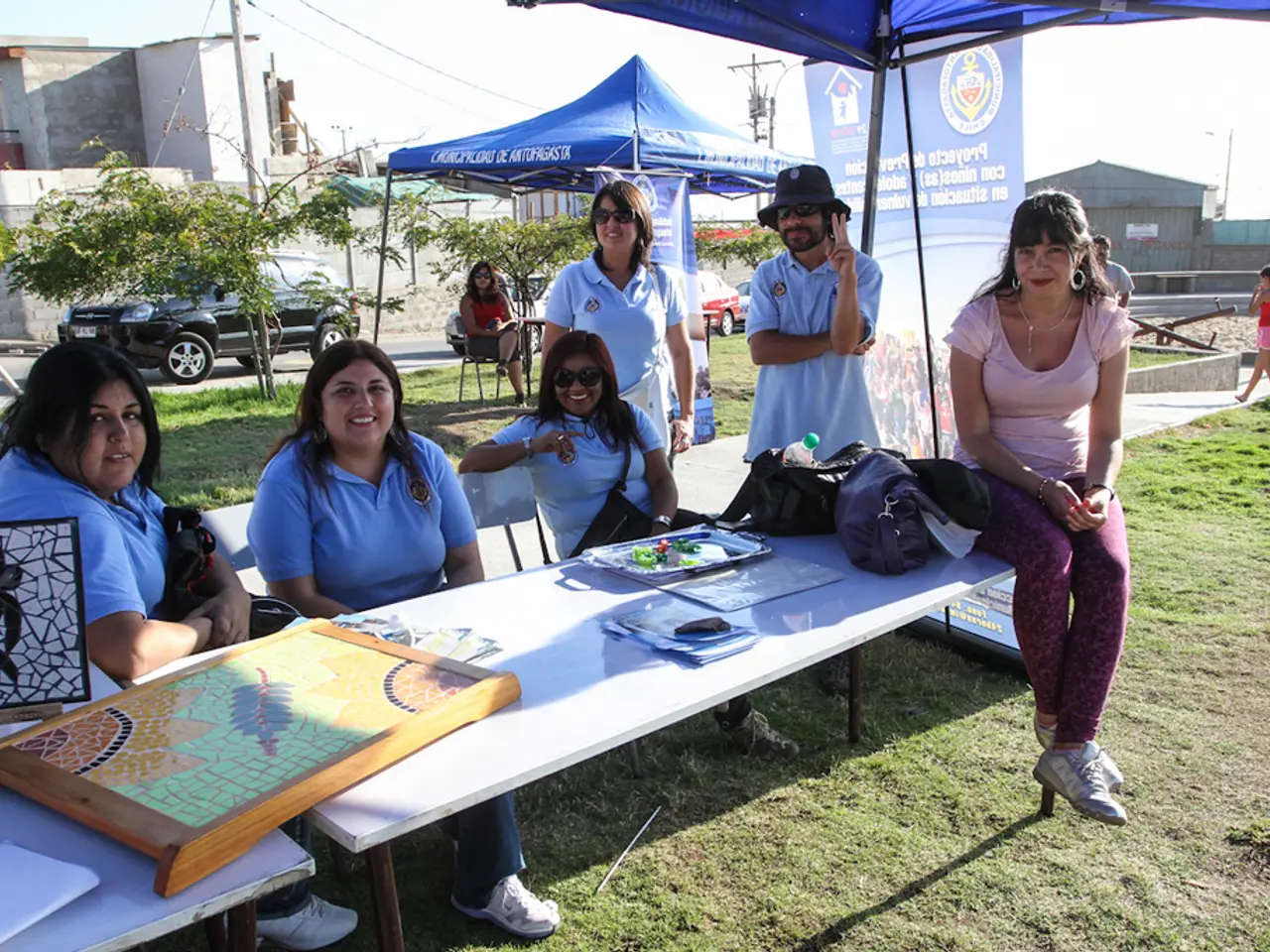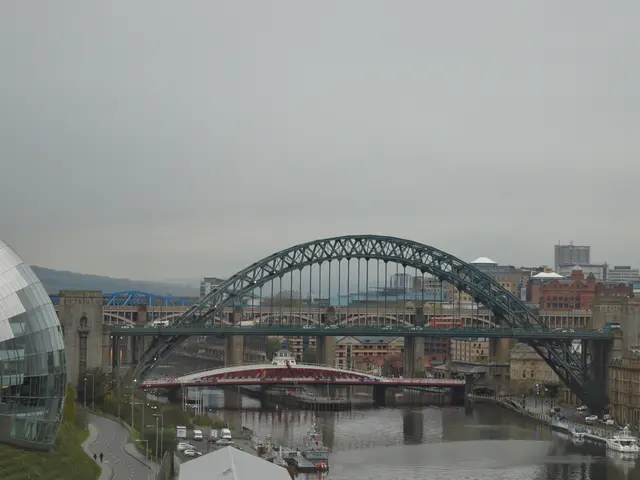Life's Uncertainties Put on Hold: Only one guaranteed fact revealed in Tottenham report
The Institute for Public Policy Research (IPPR) has proposed a significant increase in gambling taxes in the UK as a solution to address child poverty. The proposed changes, which include increasing general betting duty to 25%, remote-gaming and machine-gaming duties to 50% each, have sparked debate among industry groups, politicians, and the public.
Former UK Prime Minister Gordon Brown, who was Chancellor when the Gambling Act liberalised the UK market in 2005, has voiced his support for the IPPR's proposals. Brown suggests that gambling levies could be a source of revenue to alleviate child poverty. However, the Betting and Gaming Council (BGC) has rejected the IPPR's proposals as "reckless" and "misleading."
If enacted, the tax increases could have a significant impact on the gambling industry. An economic analysis projects that raising the tax could cost the horse racing sector £66 million in income, with associated losses of around 2,700 jobs in just the first year. The BGC warns that this could cause a “spiral of decline,” pushing companies to reduce investment and even relocate abroad.
Increasing taxes on regulated gambling is expected to increase the relative cost of legal betting products, potentially driving some consumers toward unregulated online gambling sites. These black market operators do not pay taxes or provide consumer protections, posing a risk of greater harm to players and a loss of revenue to the UK economy.
While some politicians argue that increased gambling taxes could raise funds to address social issues like child poverty, experts describe these claims as "wild" or overly simplistic. Although gambling harms cost the NHS and public services over £1 billion annually, simply raising taxes may not effectively resolve poverty and could have unintended economic consequences.
The IPPR argues that there is little robust evidence to suggest that stronger regulation or higher taxes would drive large numbers of people to the illegal market. The IPPR also points to tax regimes in other jurisdictions, such as the Netherlands, Austria, Pennsylvania, and Delaware, as evidence that a 50% rate would not undermine commercial viability.
However, the IPPR concedes that there is a potential risk to black markets. It suggests that £3 billion ($4 billion) could be raised by these tax increases, but acknowledges that it isn't a "major threat." The IPPR's arguments have been met with scepticism by the BGC, which argues that further tax rises would do more harm than good for punters, jobs, growth, and public finances.
Polling by the Social Market Foundation in October 2024 suggested that doubling taxes on gambling companies is a popular policy among the public, with a majority (52%) supporting the idea. For Chancellor Rachel Reeves to ignore the IPPR's call to alleviate poverty would be difficult, particularly given the public support for increased taxes on the gambling industry.
In summary, while increasing gambling taxes might be intended to generate public revenue and fund social programs, leading industry groups and analysts warn of detrimental effects on jobs, sport funding, and growth of unregulated gambling, as well as doubts about the effectiveness of such measures to address child poverty. The debate continues as policymakers consider the potential implications of the IPPR's proposals.
[1] Betting and Gaming Council (2021). Impact of tax increases on the gambling industry. [Online] Available at: https://www.bettingandgamingcouncil.co.uk/impact-of-tax-increases/
[2] Racing Post (2021). Horse racing faces £66m tax hit under new gambling duty. [Online] Available at: https://www.racingpost.com/news/horse-racing/horse-racing-faces-66m-tax-hit-under-new-gambling-duty/478311
[3] Gambling Commission (2021). The social and economic impact of gambling harm. [Online] Available at: https://www.gamblingcommission.gov.uk/for-the-public/about-us/our-reports-and-statistics/research-reports/social-and-economic-impact-of-gambling-harm.aspx
[4] The Guardian (2021). Bookmakers warn of 'spiral of decline' as gambling tax rises loom. [Online] Available at: https://www.theguardian.com/business/2021/mar/10/bookmakers-warn-of-spiral-of-decline-as-gambling-tax-rises-loom
[5] The Independent (2021). Gambling tax hike 'would not directly help child poverty', experts warn. [Online] Available at: https://www.independent.co.uk/news/business/news/gambling-tax-hike-child-poverty-b1844255.html
- The Institute for Public Policy Research (IPPR) has suggested that a significant increase in gambling taxes could alleviate child poverty in the UK.
- Former UK Prime Minister Gordon Brown supports the IPPR's proposals, suggesting that gambling levies could provide a source of revenue to address child poverty.
- However, the Betting and Gaming Council (BGC) has described the IPPR's proposals as "reckless" and "misleading."
- If enacted, the tax increases could have a substantial impact on the gambling industry, potentially leading to job losses and reducing investment.
- The BGC warns that this could cause a "spiral of decline," pushing companies to relocate abroad.
- Increasing taxes on regulated gambling might drive some consumers towards unregulated online gambling sites, posing a risk of greater harm to players and a loss of revenue to the UK economy.
- While increased gambling taxes could generate public revenue, leading industry groups and analysts caution about the potential detrimental effects on jobs, sport funding, and growth of unregulated gambling.
- Polling suggests that the public supports increasing taxes on gambling companies, but experts question whether such measures would effectively resolve child poverty and could have unintended economic consequences.




